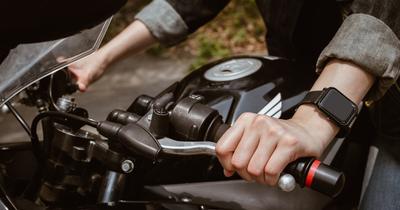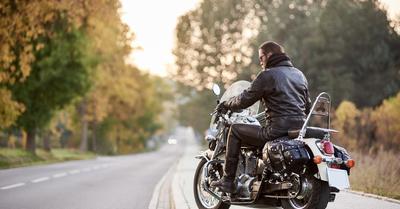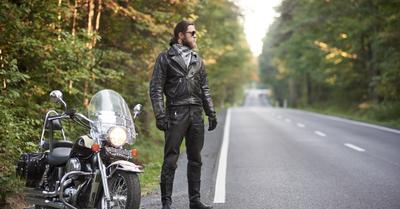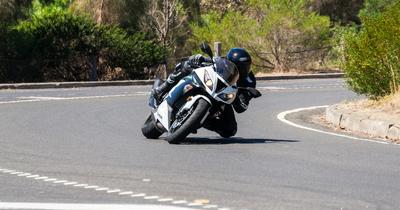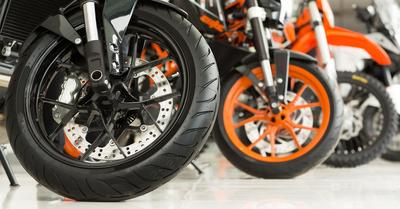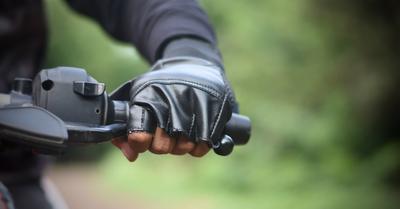Ultra Classic Cam Tension Issues
The 2000 - 2003 FLHTCUI Ultra Classic Electra Glide 5-speed, 1450cc with the new vibration isolated Twin Cam 88 Engine had a Bore x Stroke 3.75 x 4.00 inch and a Compression Ratio of 8.9:1 making the stock horsepower around 65 and the torque 72. Upgrades made the horsepower and torque even more powerful than the Evolution Engine it replaced with more consistency, reliability, and durability. The problem during these early Twin Cam 88 years was a tiny little piece of plastic at the end of a tension cam follower arm.
The plastic end gets eaten away by the sharp edges of the cam chain. Once the plastic is worn down, metal grinds on metal, and the shavings and scrap can be shredded into the oil pump leading to clogged lines or shredded into the engine itself leading to catastrophic engine failure. The answer came in later V-Twin upgrades around 2008 with a hydraulic chain tensioner.
Anyone with an Ultra Classic near 1999 - 2007 should check the wear of the cam chain tensioner and get an upgraded cam gear kit or install Harley’s hydraulic cam kit. Unfortunately, there was no recall, so you’re on your own with the cost, but it’s a must for those with the compromised early 2000 V-Twin.
5th Gear Whining Noise
In 2006 Harley-Davidson transitioned their transmission to six gears making the Ultra Classic better able to handle highway speeds at lower RPMs which came in handy when passing that occasional 18-wheeler in heavy traffic. Some found it unnecessary but most received this upgrade well with one noticeable issue. Legions of Ultra Classic Harley owners began to complain about a loud whining sound that obnoxiously emanates from the engine when the fifth gear is engaged.
The reason for the noise is because of straight-cut gears that are meshing together with a whining sound that is completely normal for that type of gear setup. A curved, slanted gear (helical) cut would be a quieter gear system, but would not give the performance the straight cut does. Because there are more teeth in the helical, an argument can be made that it is stronger with more load bearing capabilities, but the straight-cut gears are less expensive, lighter, take up less room, less thrust loading, and because there is less sliding than the helical, it is more efficient with less energy lost delivering more power to the rear wheel. The only problem? Noise. It is seriously noisier. But most owners have a solution for the fifth gear whine.
One solution is to just embrace it. After all, Harley owners did not buy their hogs for peace and quiet. Some old schoolers suggest that more whining can be heard from the new generation of H-D bikers than from the fifth gear, and they not only accept the screeching but actually like it. It’s the sound of efficiency, Harley power, and motorcycle gravitas.
The other solution is to use a higher grade synthetic transmission lubricant in a 75/90 (or heavier) like Spectro Platinum 75/140 or Redline Shockproof 75/250. Of course, there are also after-market compensators that you can upgrade to, but most of the noise can be dampened less expensively with good gear oil.
Hot Engine in Slow Traffic
Another Ultra Classic Harley problem is the heat given off by either of its massive engines: the Twin Cam or the Milwaukee 8. When gliding down the highway with the wind cooling the engine near your calves, even in shorts you won’t feel the heat emanating from the motor under the seat. But when the California sun heats up the pavement to egg-frying levels and you’re stopped at a light or in tire-to-bumper traffic, you’re gonna feel your legs becoming barbequed. Before they become well-done, there are a couple of solutions.
A few ideas to prevent cooking your legs past well-done are after-market heat shields and floor board extensions for both passenger and rider which keep your legs further away from the chugging engine. Another way to handle the issue is wrapping the pipes under the header with exhaust (heat) tape. But beware, this can corrode the pipes because of trapped moisture collecting under the tape, so drying out the bike before parking and walking away from it is important. In certain situations when the engine temperature is controlled, you can close the right vent on your fairing to keep air from coming in crossing the hot engine and transferring it to your legs. This is counterintuitive but works well.
General Oil Leaks
If there is one common complaint about Harleys in general, it’s the oil leak issue. I won’t spend a lot of time on this because it is hit or miss, but Harley-Davidsons have more o-rings, gaskets, and seals than most other bike manufacturers, and, thus, more potential for oil leaks. They also separate the transmission from the engine while other brands keep them in the same housing. Quality control has been an issue in the past but has improved in recent years; however, the reputation for oil leaks lingers.
In 2017 some 57,000 H-D motorcycles were recalled because of an oil line coming loose, and the Ultra Classic was on that list. These leaks are not hard to deal with and are usually easily fixable even for the novice Harley owner. All Ultra Classic owners should check these seals and gaskets regularly with most leaks appearing on the front, left side of the engine where the voltage regulator wires go into the stator as well as the shaft seal under the rear shifter linkage connecting it to the transmission.
ABS Braking System Problems
According to a study by the US Department of Transportation, the biggest difference between car vs. motorcycle safety is that 80 percent of motorcycle accidents result in injury or death to the rider versus 20 percent of car crashes. The best defense for bikers is the braking system of the motorcycle. In two-thirds of these accidents, rider error was involved typically because of over braking, overturning on a curve, or under-cornering on a turn all because of braking issues. Brake control is one of the most important aspects of avoiding a serious accident that can cause injury or even death.
One of the greatest inventions to compensate for rider error in braking is Anti-lock brakes which can prevent loss of control while skidding. Digital traction control enhances safety more than anything else on the bike, and when this system is compromised, it can obviously be a problem.
Anti-lock brakes, invented in the 1920s, became standard equipment on most cars in the 1980s and are available on motorcycles too. In 2012, the European Commission required new bikes over 125ccs to be equipped with this new braking system. Why? Because a study done by the Insurance Institute for Highway Safety found that motorcycles with ABS were 37% less likely to experience a fatality in a crash than those without ABS.
Harley offered ABS as an $800 upgrade in 2008 on the Ultra Classic for safety reasons. Sadly, the H-D ABS braking system has been fraught with major issues. In 2018, a voluntary recall was issued by Harley-Davidson for over 175,000 touring bikes from 2008 – 2011 because of a defect in the brakes. Unfortunately, another defect was overlooked. The wiring connecting the sensors for wheel speed to the ABS was faulty. These years are still not on a recall list and all Ultra Classic Harley owners should check out their ABS wiring as they can be prone to fail without warning. Normally, if an ABS fails, a warning light is illuminated on the instrument panel, but this warning light is inconsistent and may not always light up.
The importance of knowing whether or not your ABS has failed cannot be understated. If you do not have ABS you brake in an emergency differently. You pump the brakes by engaging and releasing, and re-engaging the brakes to prevent the wheels from locking up. However, if you have ABS, you apply consistent and constant pressure while the ABS takes control and automatically pumps the brakes by pulsing them for you. Because Harley-Davidson has not acknowledged this major issue in touring bikes during these years, every owner should have the ABS checked by a professional, possibly replacing the wiring. Of all the Ultra Classic issues, this one is the most important, with the most serious consequences if ignored.





